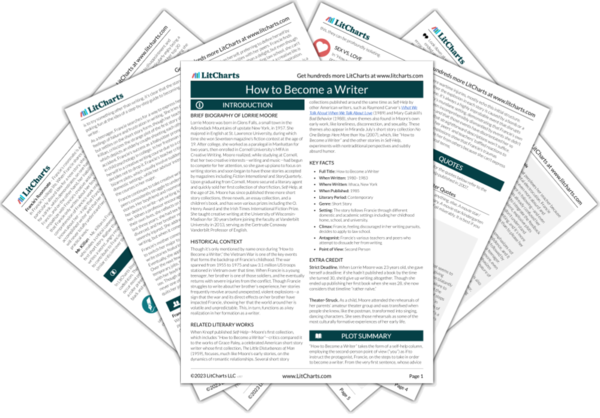In “How to Become a Writer,” Francie, the protagonist, finds the idea of sex uncomfortable and threatening. As a teenager, she’s compelled to investigate the subject by poring over the sex manuals and erotic magazines she finds in the houses where she babysits, but what she finds is perplexing. Francie doesn’t understand how people who love each other could perform the sexual acts she sees in those pages: for her, sex is not only distinct from love but completely at odds with it. When Francie has sex for the first time, it’s a painful and life-altering experience—something she survives, not something she enjoys. After she breaks up with her college boyfriend, she begins to date and have sex with men who treat her roughly with shouted commands rather than gentle whispers. Francie sees this development as beneficial to her writing, which suggests that sex remains confusing and estranging rather than fulfilling for her. And it is seemingly for this reason—for the complexity related to having intercourse—that she feels like sex itself is worth writing about. Through Francie’s uncomfortable encounters with both the subject and the act of sex, then, the story demonstrates that even—or perhaps especially—when sex has nothing to do with love, it’s still a highly intimate and volatile experience that can profoundly alter a person’s sense of self.
Sex vs. Love ThemeTracker

Sex vs. Love Quotes in How to Become a Writer
You have broken up with your boyfriend. You now go out with men who, instead of whispering “I love you,” shout: “Do it to me, baby.” This is good for your writing.









